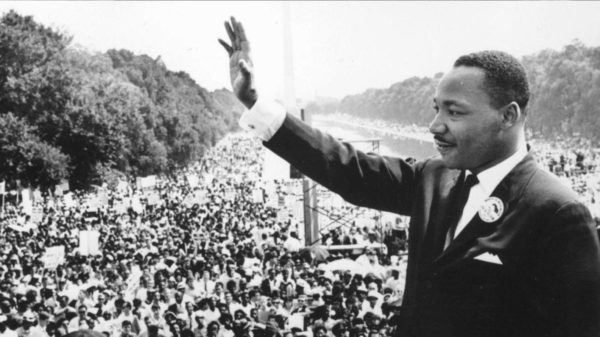
Fulfilling the Dream – Reparations in Muncie, Indiana
Time to Discuss Reparations
I can still remember how Governor Mitch Daniels treated Howard Zinn when he learned of his death. Zinn wrote history based on the people’s truth versus the whitewashed version rich white men want telling. Truth versus propaganda.
As we know from history, cheap natural gas brought the Ball brother’s glass production plant to Muncie. Other factories soon followed.
If you read all the “definitive historical accounts,” the original Ball brothers were very receptive of the African Americans who migrated from the Southern states. While other oligarchs refused to give them jobs, the Ball brothers gave them a place to work.
Structural Racism
As I shared two years ago and recently updated, the Ball family used their weight with local banks, realtors, and government officials to keep blacks cornered in certain parts of town. Neighborhood restrictions kept “Negroes” from buying homes in all but a couple of neighborhoods.
I came across an article written by Nkechi Taifa, a Senior Policy Analyst with the ACLU. She wrote this in May 2020:
The absence of justice continually flustered me because, even at that young age, I knew that Black people had been kidnapped and brought to this country to labor for free as slaves; stripped of our language, religion, and culture; raped and tortured; and then subjected to a Jim Crow-era of lynchings, police brutality, inferior education, substandard housing, and mediocre health care. I did not know then about the massacres in Rosewood, Florida, or Tulsa, Oklahoma; the merciless experimentations on defenseless Black women devoid of anesthesia that led to modern gynecology; or about the enormous profits from slavery made by corporations, insurance companies, the banking and investment industries, and academic institutions.
But on a psychic level, I could feel in my bones the enslavement era’s inhumane cruelty to Black children — its destruction of kindred ties and its economic exploitation and cultural deprivation. There was an incessant gnawing in my soul for amends and redress. I was passionate about injustice, felt the idea of reparations to be reasonable and fair, and vowed to talk about the concept whenever and wherever I could. My analysis, however, had not crystallized beyond a check. But just to mouth the word “reparations” was a starting point to its validity. Thus talk about it I did, despite my views being often rejected, ridiculed, or otherwise summarily dismissed.
https://www.aclu.org/news/racial-justice/reparations-has-the-time-finally-come/
After watching the video of George Floyd’s death by the knee of a police officer, I felt sick to my stomach. After listening to the United States president calling NFL players “sons of bitches” for kneeling during the national anthem, I was embarrassed to be an American.
Martin Luther King’s 1963 famous speech (I Had a Dream) and Billie Holiday’s 1959 voice to the poem (Strange Fruit) kept coming into my mind. Sadly, we haven’t changed much in the last sixty years?
Reparations
Martin Luther King’s infamous “I Had a Dream” speech in 1963 addressed reparations for slavery; it was nearly sixty years ago. General Grant actually ordered that slaves be given 40 acres and a mule left over from the Civil War; after Lincoln’s assassination, Andrew Johnson reversed Grant’s decision giving the land back to slaveowners and, in some cases, gave the former plantation owners compensation.
MLK reminded the nation of her promise in his 1963 speech:
In a sense, we have come to our Nation’s Capital to cash a check. When the architects of our great republic wrote the magnificent words of the Constitution and the Declaration of Independence, they were signing a promissory note to which every American was to fall heir.
This note was a promise that all men, yes, black men and white men, would be guaranteed the inalienable rights of life, liberty, and the pursuit of happiness.
It is obvious today that America has defaulted on this promissory note insofar as her citizens of color are concerned. Instead of honoring this sacred obligation, America has given its colored people a bad check, a check that has come back marked “insufficient funds.”
But we refuse to believe that the bank of justice is bankrupt. We refuse to believe that there are insufficient funds in the great vaults of opportunity of this nation. So we have come to cash this check, a check that will give us upon demand the riches of freedom and security of justice.
Martin Luther King, Jr., Nation’s Capitol, 1963
What is Muncie Doing?
It’s time for real change. In Muncie, Indiana, the black community should develop the central idea behind reparations due to housing and wealth inequalities and funnel it through the new Deputy Mayor, Richard Ivy. Other communities are passing declarations and sending them to the federal government for assistance. In Muncie, we know who engineered racism. We know who wrote the restricted property covenants. We know who redlined Muncie. We don’t need the federal government’s assistance.
Muncie’s needs are for the descendants of the Ball family to come forward and atone for their ancestor’s sins and start looking for ways to compensate those families negatively affected by structural racism. A public acknowledgment followed by financial restitution.
To raise awareness in our community, there will be a Reparations Rally on Saturday, February 13, 2021. I spoke with one of the local organizers of the rally, Kiana Williams, and she’s been working with a group from Minnesota which arose after the murder of George Floyd last year. Kiana is a Ball State student who’s working with co-organizers in both Muncie and Indianapolis. The guest speakers for the rally will be:
Dr. Gregory Ellcessor, Steve L. Smith, and honorary guest, Yvonne Thompson. BSU students speakers: Kiana Williams and Leandra Rainey Introducing Speakers: Catherine James & Monica James.







